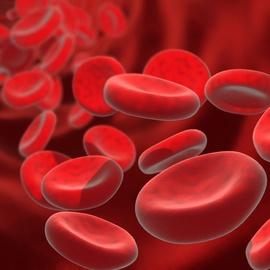Optimize Your Health
Holistically
How to use biomarkers in your practice
Tracking biomarkers to help you lose & maintain weight
Inflammation markers
Improve biomarkers to up your motivation & drive
Extend your healthspan and lifespan
Biomarkers affecting mental health
Brain fog and biomarkers
WHICH BIOMARKERS DO WE MEASURE
Inflammation
Homocysteine
Metabolic Fitness
HbA1c
TC:HDL Ratio
Hormonal & Nutritional Balance
Homocysteine
Testosterone:Cortisol
Cardiovascular Health
TC:HDL Ratio
TG:HDL Ratio
TG:HDL Ratio
TRACKING BIOMARKERS TO HELP YOU LOSE & MAINTAIN WEIGHT
Closely connected biomarkers: TSH, HbA1C, Insulin, vitamin D, homocysteine
How can tracking biomarkers help you lose & maintain weight?
More than two-thirds of American adults are obese or overweight Losing and maintaining a healthy weight can be challenging in a fast-paced lifestyle. Tracking related biomarkers can paint a picture of your unique metabolic health and give you clues on how to personalize your weight loss journey to get healthier quicker and more easily
How is SiPhox Health test different from your annual physical?
Although some of these markers may have been tested at your last annual physical, testing with an at-home test kit will give you a more holistic view of all the crucial markers for healthy weight management Testing regularly, at your own pace, will help you see how your biomarkers change as you implement healthy changes. You can also connect your wearable to see how your sleep, activity levels, and heart efficiency affect your weight.

Healthy weight loss in a fast-paced lifestyle

Only 12% of Americans are metabolically healthy That is largely attributed to our busy and stressful lives with poor nutrition and lack of sleep and movement On the other hand, every billboard, magazine cover, and social media post tries to advertise some different fad weight loss method In order to become sustainably healthy and lean, getting to know and listen to your body is essential.




Which biomarkers are closely connected to weight loss?
Vitamin D
Studies have found that higher body fat percentage is associated with lower blood levels of Vitamin D Women with adequate Vitamin D levels have lost 7 pounds more than those on the same weight loss regime with non-adequate levels, and women who weren ’t actively losing weight still lost body fat with simply supplementing Vitamin D This may be due to its effects on suppressing the formation of new fat cells and storing existing fat cells.
Thyroid Stimulating Hormone
When your thyroid doesn't make enough hormones, it slows your metabolism This means your body burns fewer calories, often leading to weight gain. If your TSH levels are on the higher side of normal or elevated, it's closely linked to obesity and can predict weight gain
Insulin
Insulin is a hormone released by the pancreas that controls blood glucose levels. However, when the body develops insulin resistance, the pancreas compensates by producing more insulin. Elevated insulin levels can negatively impact your metabolic health and create challenges in weight loss while making you more likely to gain weight.
Hemoglobin A1C
HbA1C provides an average of your blood sugar for the past three months It is one of the most useful ways to monitor the body’ s glucose control. Poor glucose regulation is closely linked to weight gain. There is a proven linear relationship between HbA1c reduction and weight loss
INFLAMMATION MARKERS
Closely connected biomarkers: ferritin, hsCRP, homocysteine, vitamin D
Why should you be tracking your inflammation markers?
Inflammation is beneficial when the body requires it to combat acute infections or injuries However, it becomes detrimental when it persists over a long period, leading to chronic inflammation. Chronic inflammation can speed up the process of aging. Socalled inflammaging contributes to premature frailty, wrinkles and other physical symptoms of age, as well as earlier mortality.
Measuring is the first step to reducing inflammation
Unlike actue inflammation, which manifests visibly as swelling, fever, or redness, the much more harmful lowgrade chronic inflammation is hard to notice You may feel the symptoms such as exhaustion, unexplained weight gain, or aches, but in order to accurately assess the levels of chronic inflammation, it’ s important to measure relevant biomarkers

What is inflammaging

The scientific community is still exploring whether inflammation is the main culprit behind aging or if aging itself triggers inflammation. However, what we do know for sure is that making healthy lifestyle choices and actively managing chronic inflammation can have a significant impact on our overall well-being. By adopting habits that regulate and lower inflammation, we can expect to enjoy a longer, more vibrant life with improved cognitive functions
Inflammatory factors
Chronic inflammation is caused by many modern lifestyle factors, including chronic stress, poor sleep, lack of exercise, environmental toxins, nutrient deficiencies, insulin resistance, and inflammatory foods (such as seed oils, conventional processed meats, or MSG and food colorings





Which biomarkers are closely connected to inflammation?
Ferritin
Ferritin levels increase during inflammation to decrease the bacterial growth of iron, and as such it is a marker of both acute and chronic inflammation High ferritin can be a strong predictor of many inflammatory diseases, including fatty liver disease and many cancers
High Sensitivity CRP
C-reactive protein (CRP) is a protein produced by the liver that indicates inflammation in the body A high-sensitivity CRP can detect even the smallest changes in inflammation, so it’ s more useful for measuring low-grade inflammation.
Homocysteine
Elevated homocysteine levels are linked to age-related inflammation, and inflammatory diseases such as arthritis. Homocysteine can be naturally lowered by consuming folaterich foods, such as leafy green vegetables.
Vitamin D
Low vitamin D levels are associated with chronic pain, mood issues, depression, fatigue, muscle weakness, high blood pressure, and susceptibility to frequent colds and flus — all signs of inflammation A recent study shows that vitamin D supplementation leads to a significant improvement in chronic inflammation.
FerritinIMPROVE BIOMARKERS TO UP YOUR MOTIVATION & DRIVE
Closely connected biomarkers: testosterone, cortisol, inflammation, TSH
How can tracking biomarkers improve your drive?
Drive is more than just the desire to have sex Drive is the motivation to get out of your bed in the morning, to build a career, to create, and to make a positive impact on your life and the lives of others
The neuroscience of motivation and drive
The neuroscience of motivation and drive explores the underlying mechanisms in our brain that influence our behaviors, desires, and determination Several brain regions and neurotransmitters play essential roles in shaping our motivation, including the prefrontal cortex, the dopamine-producing nucleus accumbens, the amygdala, the hippocampus, and the hypothalamus

Assessing and improving your drive with regular bloodwork

Bloodwork can provide valuable insights into how our hormones and other markers work synergetically to help us achieve our goals While it does not measure motivation directly, targeted bloodwork is the best indicator of what areas of your health you must balance to regain control of your life
Motivation and life satisfaction
When thinking of drive and motivation, the first association is often success in business or checking off todo lists. But healthy motivation is more than that - it’ s crucial to life satisfaction It impacts goal achievement, a sense of purpose, enjoyment, perseverance, and feelings of personal growth





Which biomarkers are closely connected to drive?
Testosterone
Testosterone has an impact on behavior patterns, including aggression and dominance. It also stimulates competitiveness and enhances self-worth. Testosterone can rise or fall with engaging in sexual or competitive activities Insufficient testosterone may lead to diminished confidence and decreased motivation. It can also impair concentration and induce feelings of sadness Additionally, low testosterone can disrupt sleep patterns and result in a lack of energy.
Cortisol
The fluctuations in cortisol levels directly influence the degree of motivation Even slight elevations in cortisol can provide sudden bursts of energy, triggering a fight response to stimuli. Additionally, these increases can temporarily improve cognitive abilities, aiding in successfully resolving potential threats On the other hand, chronically elevated cortisol can have detrimental effects on one ’ s drive, including irritability and difficulty concentrating
Inflammatory markers
Chronic inflammation in the body has been linked to decreased motivation and drive. Measuring inflammation with a blood marker such as hsCRP can indicate if that is a potential factor affecting motivation.
TSH
The thyroid gland regulates metabolism and energy levels. Abnormalities in thyroid hormone levels can lead to fatigue, lethargy, and decreased motivation This is primarily caused by hypothyroidism, a condition caused by the thyroid gland not producing enough thyroid hormone, which is indicated by high levels of TSH in blood
EXTEND YOUR HEALTHSPAN AND LIFESPAN
Closely connected biomarkers: high sensitivity CRP, triglycerides, ferritin, fasting insulin
Extend your life- and healthspan by tracking biomarkers of aging
Longevity is an emerging industry researching the extension of healthy lifespan There is a real option to utilize strategies to live not only longer, but spend the later years of one ’ s life productively, actively, and feeling great Measuring is a key element of personalizing the journey towards it.
Chronological vs. biological age
Chronological age simply refers to the years passed since our recorded date of birth Biological age, on the other hand, represents the extent of our body's time-related functional decline in comparison to the average individual within a population. For instance, you may have a chronological age of 45 but a biological age of 32, which indicates a favorable condition as our all-cause mortality and morbidity risks would align with those of an average person who is chronologically 32, rather than 45 The opposite can be true, indicating a sped up process of aging in the body

Hallmarks of aging

Hallmarks of aging are a consensus model that describes the observable damage of aging Each hallmark is proven to slow down the process of aging and increase healthy lifespan if reversed A 2013 article originally defined 9 hallmarks of aging, but the list has now been extended to 12. They include epigenetic alterations, chronic inflammation, dysbiosis, deregulated nutrient sensing, mitochondrial dysfunction, genomic instability, telomere attrition, loss of proteostasis, disabled macroautophagy, cellular senescence, stem cell exhaustion, and altered intercellular communication




Which biomarkers are closely connected to longevity?
High Sensitivity CRP
The term "inflammaging" describes the gradual increase in inflammation as we age. It has a wide range of implications when it comes to disease-related activity like arteriosclerosis, neuroinflammation, osteoarthritis, and bone degradation. hsCRP is one of the best biomarkers to measure systemic inflammation
Triglycerides
High levels of triglycerides may indicate fatty liver or reduced cellular functions, such as insulin resistance. These conditions are a major determinant of accelerated aging, and reversing them can contribute to prolonged healthspan
Ferritin
Although anemia (iron deficiency) is well known, iron overload is a more common and dangerous problem. Most adult men and post-menopausal women are at risk for iron excess Because of the absence of systematic iron elimination mechanisms, we tend to accumulate excess iron with age. In the natural world, iron reacts with oxygen to form rust Within the body, it has a similar effect, causing elevated levels of oxidative stress Ferritin levels can be lowered by donating blood, sweating at the sauna, or taking the right supplements
Fasting Insulin
Consisently low fasting insulin levels serve as a reliable indicator of longevity since they reflect the consistency of elevated blood sugar levels over time. Increased insulin levels have been linked to higher rates of mortality
BIOMARKERS AFFECTING MENTAL HEALTH
Closely connected biomarkers: high sensitivity CRP, cortisol, TSH, testosterone and estrogen
How can tracking biomarkers help you improve or maintain sleep and mental health?
Sleep plays a vital role in maintaining and promoting optimal mental health As humans, we spend about one-third of our lives sleeping, and this seemingly passive state actually has profound effects on our cognitive, emotional, and psychological wellbeing. In recent years, research has increasingly highlighted the intricate relationship between sleep and mental health, emphasizing the significance of a good night's rest in promoting overall emotional resilience, psychological stability, and overall wellbeing.
The connection between mental and physical health

Mental and physical health are closely intertwined. Poor mental health can negatively impact physical well-being, while maintaining good physical health can positively influence mental well-being. Chronic stress, anxiety, and depression can contribute to physical health issues, while healthy lifestyle and food choices can improve mood and mental well-being Recognizing this interconnection is vital for overall health and happiness
Sleep and mental health today
Only 1 in 3 Americans get enough sleep In our current day, the importance of sleep in maintaining optimal mental health has gained increasing recognition. The fastpaced, technology-driven society we live in often promotes a 24/7 culture, leading to disrupted sleep patterns, insufficient rest, and chronic sleep deprivation Understanding when and why our patterns are affected, and with it, our mental health, is critical to solving this problem





Which biomarkers are closely connected to sleep and mental health?
High Sensitivity CRP
Studies have found that higher hs-CRP levels are associated with insomnia and a general lack of sleep It can also be linked to oversleeping If your hs-CRP levels are high, it could be an answer for over/under sleeping.
Cortisol
Higher cortisol levels have been thoroughly linked to sleep deprivation and lack of sleep quality. It is the hormone in your body that regulates stress levels, so understanding your levels is critical in analyzing the stress in your life Cortisol is extremely important to measuring sleep quality and mental health and is easily measured from a SiPhox Kit.
TSH
TSH, or thyroid stimulating hormone, has been found to link to mood swings and heightened risk of depression. Lower levels are more indicative of depressive risk and mood swings
Testosterone & Estrogen
Levels of testosterone in men and estrogen in women are indicative of mood swings and irritability, both of which play a central role in mental health In men, low testosterone levels have been linked to low energy, risk of depression, and lack of sleep. Meanwhile, higher levels are indicative of irritability. In women, estrogen regulates mood and stress, so lower levels have been linked to mood swings and other issues.
BRAIN FOG AND BIOMARKERS
Closely connected biomarkers: cortisol, TSH, high sensitivity CRP
How Tracking Biomarkers Can Help You Reduce Brain Fog
Brain fog is a cognitive symptom characterized by difficulties with focus, memory, and mental clarity It can manifest as a feeling of mental sluggishness, impacting daily productivity and overall cognitive functioning. Brain fog can serve as an indicator of an underlying illness, a result of hormonal changes, or even a long-run side effect of a past ailment, so it is important to measure biomarkers to differentiate between causes. In recent times, brain fog has been a common symptom for individuals who contracted COVID-19, with 32% of patients experiencing brain fog months after sickness.
Brain fog can occur due to multiple factors
Brain fog is a symptom of a plethora of conditions, lifestyle choices, and medications Causes can range from chronic stress to chronic illnesses such as fibromyalgia. Hormonal imbalances and side effects from medications that impact cognitive function, such as antidepressants, are other common sources of brain fog. Additionally, chronic illnesses often cite brain fog as a symptom, with conditions like fibromyalgia and chronic fatigue syndrome impairing mental clarity

What is the link between COVID-19 and brain fog?

One of COVID-19’ s most common long-term symptoms is brain fog, often experienced months after the initial infection and regardless of the severity of the case This phenomenon occurs due to the body’ s inflammatory and immune response to the virus, resulting in inflammation of the central nervous system and the creation of antibodies that mistakenly target healthy brain tissue. In addition, the virus and its vascular damage inhibit blood flow to the brain, culminating in problems with memory and cognitive function
Brain fog may sound vague, but it can have debilitating effects
Brain fog can significantly impact daily activities It can result in reduced productivity, difficulties with concentration and problem-solving, and challenges in maintaining optimal cognitive functioning. Brain fog can make it harder to complete tasks, impact decision-making abilities, and hinder overall cognitive performance. It may also lead to feelings of frustration, fatigue, and decreased motivation




Which biomarkers are closely connected to brain fog?
Cortisol
If your cortisol levels—along with serotonin—are out of balance, you may find yourself emotional and sluggish This imbalance can also cause trouble sleeping, and can affect mental clarity. Lack of sleep can also lead to increased cortisol levels, causing a vicious cycle
TSH
TSH, released by the pituitary gland, stimulates the thyroid gland to produce thyroid hormones (T4 and T3) that regulate brain cell metabolism Abnormal TSH levels, like high TSH in hypothyroidism or low TSH in hyperthyroidism, can disrupt thyroid hormone balance Hypothyroidism, with low thyroid hormone levels, is linked to cognitive impairments and brain fog due to inadequate thyroid hormone supply to the brain
High Sensitivity CRP (C-reactive protein)
High sensitivity C-reactive protein (hsCRP) is a biomarker of systemic inflammation in the body Inflammation can affect various organs, including the brain, and has been associated with cognitive dysfunction and brain fog. Elevated levels of hsCRP indicate increased inflammation, which may contribute to the development or exacerbation of brain fog symptoms.
Cortisol TSHGET TO THE ROOT OF LOW ENERGY
Closely connected biomarkers: insulin, vitamin D, ferritin, testosterone
How Tracking Biomarkers Can Increase Energy Levels
Feelings of exhaustion and constant fatigue are becoming more prevalent than ever in adults today, preventing them from engaging in daily activities Several factors can contribute to low energy levels, including inadequate sleep, sedentary lifestyles, and underlying health issues Consistenly low energy levels can indicate chronic fatigue syndrome (CFS). CFS greatly impedes productivity and quality of life while reducing life expectancy by over 20 years
Low energy can be traced to a variety of causes
Several factors can contribute to low energy levels, including inadequate sleep, poor nutrition, a sedentary lifestyle, chronic stress, and underlying medical conditions such as anemia, thyroid disorders, or depression. Understanding the causes of low energy is crucial for identifying appropriate strategies to improve overall wellbeing and restore vitality.

What is chronic fatigue syndrome?

Chronic Fatigue Syndrome (CFS), also known as myalgic encephalomyelitis (ME), is a complex and debilitating condition characterized by persistent and unexplained fatigue that lasts for at least six months and is not improved by rest. CFS is often paired with disturbances to sleep, weakened cognitive function, and reduced physical ability. It is believed to be caused by genetic, immune, hormonal, and environmental factors, making it especially important to measure biomarkers that may influence this condition
Biomarkers shed light on causes of low energy
Due to the high variety of factors that influence energy levels and the fact that these many of causes do not manifest themselves visibly, it is difficult to pinpoint what is causing your fatigue. However, measuring biomarkers provides an accurate reason for low energy to inform further treatment or lifestyle changes, and can allow for preventative measures to stop energy levels from even dropping in the first place





Which biomarkers are closely connected to low energy levels?
Insulin
Proper insulin function maintains stable blood sugar for sustained energy. Imbalances manifest as insulin resistance (linked to obesity, sedentary lifestyle, poor diet) impairing glucose uptake and causing low energy. Hypoglycemia arises from excess insulin or insufficient glucose due to skipped meals, excessive insulin use, medical conditions, leading to fatigue and decreased energy levels.
Vitamin D
Vitamin D is crucial for overall health and energy levels It supports cellular energy metabolism, muscle function, and immune function. Deficiency can lead to fatigue and increased vulnerability to illness. Adequate Vitamin D through sunlight, diet, or supplementation is essential for optimal energy and well-being
Ferritin
Ferritin, the protein that stores iron, is linked to low energy levels. Iron deficiency, indicated by low ferritin levels, can cause fatigue Iron is vital for oxygen transport and energy production in cells. Insufficient iron can hamper energy generation, resulting in tiredness and decreased energy Addressing iron deficiency through diet, supplementation, or treating underlying causes can alleviate fatigue and enhance energy levels.
Testosterone
Testosterone contributes to overall energy levels in both men and women Adequate levels of testosterone help maintain energy, vitality, and motivation. It is involved in various metabolic processes that support energy production and muscle function Low testosterone levels can result in decreased energy levels.
STRENGTHEN YOUR HEART HEALTH
Closely connected biomarkers: everything in cardiovascular health
Why should you be tracking your heart health markers?
Monitoring heart health biomarkers is crucial for individuals seeking to maintain a healthy cardiovascular system and prevent potentially life-threatening conditions Even by paying marginal attention, individuals can proactively detect early warning signs, assess their overall cardiovascular well-being, and take appropriate measures to mitigate potential risks. Regular monitoring allows for the identification of deviations from normal biomarker levels, enabling timely intervention and personalized strategies for prevention, early detection, and treatment, ultimately leading to improved heart health outcomes.
Measure success of treatment
Medical professionals will typically prescribe medication to treat heart health issues, or to simply improve overall heart health. Monitoring biomarkers relevant to cardiovascular health allows you to verify the success of supplements and medicines in your routine. Testing regularly, at your own pace, will help you see how your biomarkers change as you implement healthy changes.

Early detection of potential problems

Detecting signs of serious health issues before they become major has consistently been hailed as a surefire way to curb disease risk. By reading your biomarkers semi-regularly, you can take massive strides in facilitating the early detection of potential cardiovascular issues, enabling timely intervention and treatment before they progress to more serious conditions
Monitoring fitness
Monitoring heart health is especially crucial for fitness enthusiasts and athletes Regular monitoring of heart health biomarkers can provide valuable insights into the efficiency and effectiveness of cardiovascular performance during exercise Tracking biomarkers such as heart rate, blood pressure, and cholesterol levels can help optimize training intensity, assess cardiovascular endurance, and identify potential cardiovascular risks associated with intense physical activity Whether it is through a wearable or at home blood test, it is becoming increasingly easy to monitor several critical fitness-related biomarkers without a visit to the doctor




Which biomarkers are closely connected to heart health?
ApoB
It has been established for almost 20 years that ApoB is a better predictor of heart disease than LDL cholesterol Since heart disease is the leading cause of death in the US, addressing ApoB and making cardioprotective lifestyle modifications is critical to living healthier longer
Cholesterol
High amounts of cholesterol inhibit the flow of blood in your body, which can have serious implications It is often the result of lifestyle, but consistently high cholesterol can also be inherited.
Triglycerides
High triglycerides are directly linked to higher risk of heart disease and stroke High levels of this biomarkers and its implication can be successfully reversed by exercising regularly, losing weight if overweight, avoiding refined carbohydrates, limiting alcohol and avoiding stress
SIPHOX HEALTH YOUR BUSINESS
Take your business to the next level by offering your users personalized data and insights with SiPhox Health. Our at-home blood test measures 17 key biomarkers that will drive your user interactions in a way that optimizes for mental and physical peak health
We work with professionals and businesses of all sizes to help them deliver hyper-personalized services or products
health startups
health and wellness coaches
nutritionists and dietitians personalized supplement companies
grocery and meal delivery services
functional doctors pharmacies corporate wellness clinical research teams and more… opportunities are endless!
Get to market in one week

Reasons to work with SiPhox Health
Leverage SiPhox Health data and insights, and review the results for each user before sharing with them. Allow your users to take the test in the comfort of their own home.
Seamlessly integrate with our solution via API or your own customized portal We will support your team every step of the way with training, insights genertion, user communication and engagement
Blood testing is expensive but it shouldn’t be. Offer your users access to regular blood testing without breaking the bank. SiPhox Health offers the lowest cost per biomarker test available at 17 biomarkers for $120 *
*volume pricing available
Ship directly to your user. You will get access to your admin dashboard that will allow you to send test kits directly to your user, any time Interested? Learn more here.

